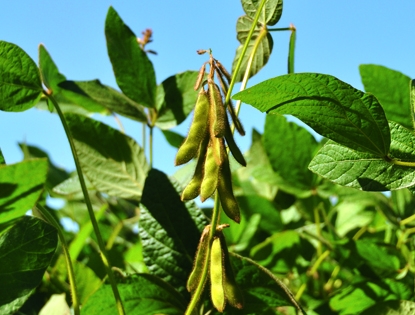Dry weather in Argentina supports soybean prices, but they remain low in Ukraine

Heavy rains have helped Argentina's soybean planting rate exceed last year's at the start of the season, prompting local agencies to raise their acreage and yield forecasts. However, the dry and hot weather that has prevailed over the past week and is expected to continue for at least another two weeks is reducing the potential for future soybean and corn harvests.
According to the Buenos Aires Grain Exchange (BAGE), in Argentina, 87% of the planned 6.6 million hectares have been sown with corn, 93% of the planned 18.4 million hectares with soybeans, and 95% of the area with wheat has been harvested.
January soybean futures on the Chicago Board of Trade rose 1.8% last week on the back of weather in Argentina, fell 1.8% on Friday, and rose again 1.1% on Monday to $364.7/t, matching last month's level. The quotes were supported by strong demand for American soybeans from China.
During December 26 - January 2, soybean exports from the United States decreased by 21.8% compared to the previous week to 1.285 million tons (of which 0.56 million tons were purchased by China), and in total in the 2024/25 MY reached 29.96 million tons, which is 23.2% ahead of last year's pace.
Brazil exported only 2 million tons of soybeans in December, which is 47.65% lower than in December 2023, as China is actively buying American soybeans in anticipation of supply restrictions after Trump came to power and on forecasts of a decrease in Brazilian soybean prices after the start of the harvest in February.
Under the pressure of low world prices in Ukraine, the demand prices for GMO soybeans remain at the level of $365-375/t or 17,500-17,800 UAH/t with delivery to Black Sea ports and 17,000-17,500 UAH/t with delivery to the factory. Export demand prices for non-GMO soybeans have fallen to $400-410/t or 19,000-19,200 UAH/t with delivery to ports or the western border, while processors buy it at 18,200-18,800 UAH/t with delivery to the factory.
Negative weather news in Argentina could lead to a speculative rise in soybean prices in the near future, but the start of the harvest in Brazil at the end of January will increase the pressure on quotes.


